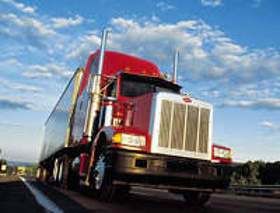Questions About Local Driving
Topic 29710 | Page 8
"OTR drivers will never memorize their routes" Steven writes.


Don't be too sure about that, but would you care to make a wager on it? When you're dealing with an extreme OCD numbers driver like me, you will lose. If I've been somewhere once, I don't need directions again, across the county, or on the opposite coast.
OTR:
Over The Road
OTR driving normally means you'll be hauling freight to various customers throughout your company's hauling region. It often entails being gone from home for two to three weeks at a time.

Steven, here's the problem. You extrapolated your "opinions" from your extremely limited experience. Then you come into a public forum to share your "opinions" as though they were reasonable expectations for all new drivers. You don't realize how misinformed you are, but you still persist in arguing your case.
That's fine, but we are going to provide some push back when you push ideas about this career that are not going to hold true for most drivers. It is not just our "opinion" that most of the time local type jobs don't work out for rookie drivers. It's been proven repeatedly. We see the stories of these failures often right here in our forum. A new driver lands a local delivery type job, has a minor accident, and then nobody wants to touch them. No one considers their local work as experience, plus they have an accident on their record. It's generally not a prudent way to start one's trucking career. That is something we teach regularly. You entered our sphere claiming we were wrong based on maybe six months experience, just because your experience differed.
.........
Thank you, Old School, for taking the time to write all this. I appreciate the lessons and you made some wonderful points.

Done OTR Regional and Local.
Local blows.
If you have a work ethic, and you are willing to ride for the brand and move Freight for the full 14 hours available to you each day, your outfit will grab that brass ring. That means youll get to run a dull 14, and then you have 10 hours to be back for your fixed start time. That means, yes, you get to drive home, S,S&S, and then drive back to work. In time for your fixed start time. 10 hours after your end time. Not much time for a life.
Thanks for this, Mr. Curmudgeon. I was actually thinking of moving to a more local role in the near future. But I was also a little bit turned off by how long their days are. I'm thinking I like regional the best. Home frequently enough but not working 14 hours days and/or unloading trucks. Regional seems to offer the best balance, but obviously that's just my take.
Regional:
Regional Route
Usually refers to a driver hauling freight within one particular region of the country. You might be in the "Southeast Regional Division" or "Midwest Regional". Regional route drivers often get home on the weekends which is one of the main appeals for this type of route.
OTR:
Over The Road
OTR driving normally means you'll be hauling freight to various customers throughout your company's hauling region. It often entails being gone from home for two to three weeks at a time.
New Reply:
New! Check out our help videos for a better understanding of our forum features

















Preview:
This topic has the following tags:
Becoming A Truck Driver Choosing A Trucking Company Dedicated Jobs Local CDL Drivers Regional Jobs Truck Driving Lifestyle







 TT On Facebook
TT On Facebook
Local driving is a very broad term. To some local just means home daily. To others it means driving less than 100 miles a day. I've not done OTR so I can't speak from experience but many times vans/refers deliver to large distribution centers with plenty of room to maneuver. Of course they also go to smaller docks as well, though likely less frequently. If I'm mistaken someone please correct me.
If an OTR driver gets a 1500 mile run they're likely spending hundreds of miles on the same stretch of interstate just driving straight (no disrespect intended) and backing maybe two to 3 times per day. Compare that to a local driver that may have to back up to 10 or more docks per day while staying on a tight schedule, bouncing around town because a certain place closes before they'd get there if they ran it the most efficient way while maneuvering city streets. Driving the truck isn't the difficult part. The difficult part comes from backing, dealing with customers and most of all impatient traffic especially backing in off the street.
The jobs have many differences and everyone has different opinions as to what the best way to go about it is. As someone who started local unloading my truck by hand driving less than 100 miles a day and up to 20+ stops its NOT a smart decision in the long term. Had I been involved in accidents I very well could've been out of the industry faster than I got in it. The current gig I have driving up to 600ish miles a day with a couple stops wouldn't be as bad for someone with a fresh CDL but it still isn't a cake walk.
CDL:
Commercial Driver's License (CDL)
A CDL is required to drive any of the following vehicles:
OTR:
Over The Road
OTR driving normally means you'll be hauling freight to various customers throughout your company's hauling region. It often entails being gone from home for two to three weeks at a time.
Interstate:
Commercial trade, business, movement of goods or money, or transportation from one state to another, regulated by the Federal Department Of Transportation (DOT).